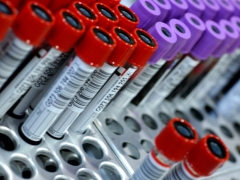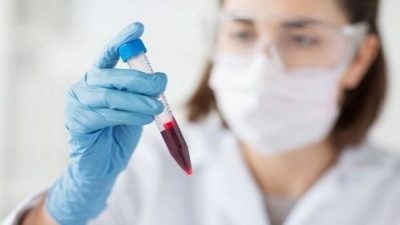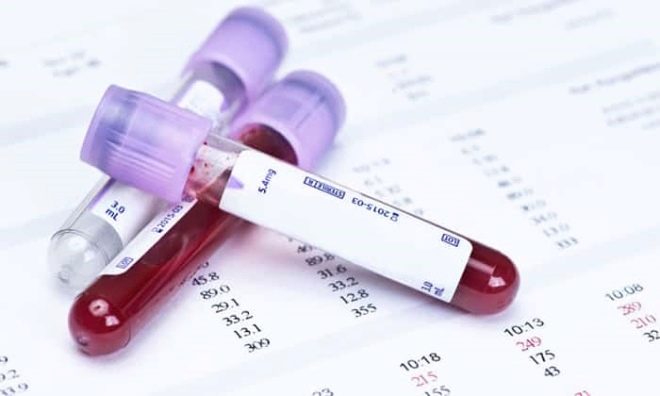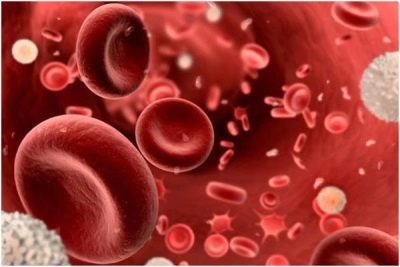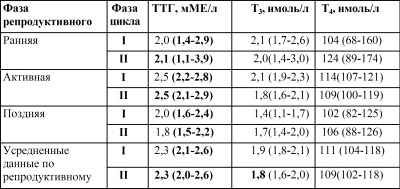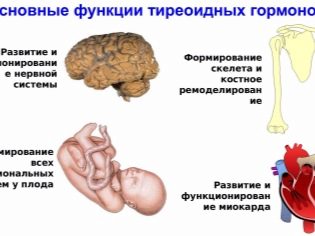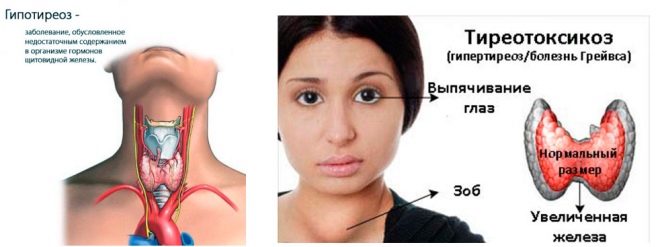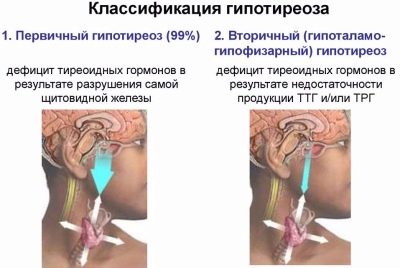TSH rates during pregnancy in the first trimester
To assess the functioning of the thyroid gland can be through analysis. For this, doctors prescribe future moms to take several biochemical laboratory tests.
Physiology
The endocrine system of a woman during pregnancy works in an enhanced mode. The main hormones that are evaluated during childbirth are TSH and peripheral hormonal substances of the thyroid gland.
The balance of these biologically active components in 1 trimester of pregnancy very important. They are necessary for optimal growth and development of the baby in the maternal tummy.
Increase or decrease in TSH above normal values is fraught with the fact that a woman will have adverse symptoms. These clinical signs lead to a significant change in its general condition.
During the entire period of pregnancy, doctors prescribe biochemical tests several times. This is necessary because to the final stage of carrying a baby in a woman's blood, the concentration of TSH changes significantly.
The development of this condition leads to an intensive blood supply to the thyroid gland, resulting from an altered hormonal balance. Such changes contribute to a small increase in the endocrine organ.
It should be noted that The changes that have occurred in most women disappear after giving birth. However, for some women they remain. In such a situation, a mandatory consultation with a doctor is already required.
Normal values
In the very initial period of pregnancy, there is no significant change in thyroid-stimulating hormone in the future mom's blood. Changes in this clinical indicator will occur much later - by the end of the second trimester of carrying a baby.
Doctors consider the normal blood concentration of this hormone to be from 0.4 to 4 MME / ml. When carrying out the analysis in the form of the result must indicate reference values.
For the convenience of obtaining the result, specialists can use special tables that indicate the limits of the norm of these hormones.
If after carrying out the laboratory test, the indicators have changed, it is necessary to re-check the obtained result. To do this, the doctor may recommend the future mom to pass the analysis in another laboratory. If after that the figures are still above the norm, then the future mom will be sent for consultation to the endocrinologist.
How is the transcript of the results?
Elevated blood levels of TSH contribute to the fact that the concentration of thyroid hormones is significantly reduced. Doctors call this condition hypothyroidism.
The development of this state leads a variety of pathologies. Hypothyroidism can be gestational and completely pass after pregnancy. In this case, it may be necessary to closely monitor the woman during the remaining periods of pregnancy.
If the concentration of thyroid hormone in the blood is higher than normal, but the level of thyroid hormones remains within the reference values, no treatment is required.In this case, doctors only look at the course of pregnancy and monitor the intrauterine development of the baby.
Reducing the level of hormones in the blood T3 and T4 under the influence of high levels of thyroid stimulating hormone contributes to the appearance in the future mommy very adverse symptoms. Such a woman quickly gaining weight. She has increased swelling, which is most pronounced on her legs.
The mood of a hypothyroid woman is changing significantly. She has a strong tearfulness, and depression can occur. Such women try to artificially limit any social contacts. Some future mothers who have these disorders, become over-sensitive to any psycho-emotional effects.
Many future moms form bradycardia. This condition is characterized by a decrease in heart rate within a minute.
The active influence of thyroid hormones on the cardiovascular system contributes to the fact that a woman's blood pressure decreases.
The hormones produced by the thyroid gland also lead to changes in the gastrointestinal tract. Reducing the concentration of thyroid stimulating hormone can lead to persistent constipation. Some women have soreness in the abdomen and increased gas formation.
A decrease in the level of TSH in the blood contributes to an increase in the level thyroid hormones. This condition is no less dangerous, especially during pregnancy. Doctors call this pathology hyperthyroidism. This condition can occur in any period of pregnancy.
Hyperthyroidism is a pathology that can also be hidden or manifest itself quite clearly. It depends on the concentration of thyroid hormones in the bloodstream. If, despite the decrease in TSH, they are not yet elevated, then the adverse symptoms do not bother the future mother. Their appearance is possible only with a significant increase in thyroid hormones.
High concentration in the blood of these hormonal substances is also quite dangerous both for the mother’s body and for her baby. Their effect on the cardiovascular system leads to the fact that a pregnant woman may experience arrhythmia. This condition is characterized by the appearance of irregular heart rhythm.
Clinical hyperthyroidism is also manifested by the development of many adverse symptoms of the nervous system. Most often this contributes to the fact that the woman appears strong tremor (tremor) of the hands. If this pathology is quite strong, then this symptom can significantly reduce the quality of life and brings pronounced discomfort.
Future moms suffering from hyperthyroidism, become more aggressive. Many of them perform a huge number of cases at the same time. Despite such vigorous activity, the future mommy does not feel tired. Mood swings are another characteristic feature of this pathology.
The appearance of any deviations in the analysis is the main reason for visiting the endocrinologist. The specialist may recommend the expectant mother to pass the additional tests necessary to establish the correct diagnosis.
Also, quite often for this purpose, the future mom is assigned to undergo an ultrasound examination.
What to do to correct the violations?
If the level of TSH in the blood is significantly reduced, then in this case the endocrinologist may recommend the expectant mother to take medications. They are selected individually.
As a rule, whenever possible, doctors try to limit the use of these drugs in early pregnancy. Too large doses of these funds in the first weeks of carrying a baby can contribute to the formation of various deviations in its intrauterine development.
If the future mother’s thyroid-stimulating hormone is elevated, an appointment may be required. compensating drugs. Such remedies include Eutirox and Thyroxin. They are appointed to normalize thyroid hormones. Reception of such preparations, as a rule, long.
Dosages, frequency of use are selected individually by the attending physician. If these drugs are assigned to the future mom, then she will be in the dispensary register with the endocrinologist throughout her pregnancy.
She may also undergo such observation after delivery.
About pregnancy and TSH in detail will tell the doctor in the next video.
